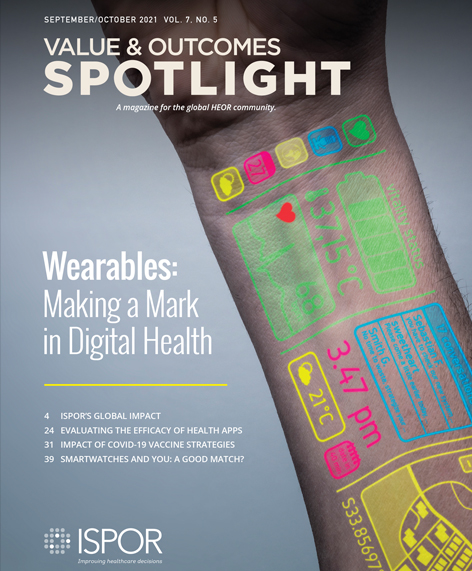Are Smartwatches Good for Your Health? A Conversation With Rodrigo Mello Ferreira, MD
Section Editor: Marisa Santos, PhD, MD, Instituto Nacional de Cardiologia, Rio de Janeiro, Brazil

I spoke with Rodrigo Mello Ferreira, MD, Professor, D’Or Institute for Research and Education Board Member, Centro Médico Pastore, Rio de Janeiro, Brazil, who works in the field of bariatric and metabolic surgery, and is a smartwatch researcher. He looks at the current implications in the aging population and thinks the applications of this technology will only grow with time.
The elderly patient will be the biggest beneficiary from the use of these devices. When compared to other devices, measuring blood pressure through a wearable is easier and more practical.
Value & Outcomes Spotlight: A new generation of wearable devices has been developed that focuses on individual health. Is there a real benefit here or are these just marketing gimmicks to increase sales?
Rodrigo Mello Ferreira: Yes, there are benefits. The research aims precisely at the scientific validation of the technology used in wearables to assess oximetry and blood pressure. We are evaluating the effectiveness of these technologies. However, even without this validation, just encouraging healthcare and monitoring would be a benefit.
VOS: What are the benefits of smartwatches for senior citizens?
RMF: The elderly patient will be the biggest beneficiary from the use of these devices. When compared to other devices, measuring blood pressure through a wearable is easier and more practical. In addition, there are many possibilities, such as continuous monitoring, fall assessment, and medication alerts, among others—all this using a device that is much more practical and familiar in our routines.
VOS: Have you worked with athletes that wear smartwatches? Is there anything they can do to help?
RMF: I’ve haven’t worked with athletes yet. But the use of smartwatches and other wearables is already a reality in the daily lives of high-performance athletes, whether in injury prevention or in monitoring results.
VOS: How committed are users to smartwatch monitoring and what are the barriers to broader adoption?
RMF: In my opinion, the high cost of some of these devices is the biggest barrier. Other reasons are the acceptance of health professionals and the validation of the technology. The users’ commitment should be minimal. The artificial intelligence will do all the work, they just need to use the wearables.
VOS: How accurate and reliable is the smartwatch monitoring?
RMF: This is the main focus of the current research: technology validation for further specific analysis.
VOS: Have you used smartwatches for patients with heart failure before?
RMF: No, I haven’t. After technology validation and the development of software, hardware, and application, we will try to prove the effectiveness of these devices, including in heart failure.
VOS: What can we expect in the next 10 years from this technology?
RMF: It is unlimited. The most important thing is to expand access by lowering the cost. In my view, at minimum, we can expect continuous monitoring and diagnosis of high blood pressure, with home and outpatient blood pressure monitoring, not to mention services related to geolocation.

